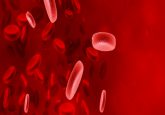Breast cancer news round-up: breakthrough drug approvals and research

In this breast cancer news round-up we highlight the most notable drug approvals and research advancements that have emerged over the week.
Palbociclib and ribociclib given the green light for routine NHS use
Palbociclib and ribociclib have been approved for use on the NHS for individuals with hormone receptor positive, human epidermal growth factor receptor 2 negative locally advanced or secondary breast cancer; following the release of draft guidance from NICE.
The committee found that both palbociclib and ribociclib stalled the growth of the cancer for an extra 10 months on average and concluded that it was likely that this would result in some improvement in overall survival, although this could not be quantified from the current clinical trials.
“The development of this brand new class of cancer drug is one of the most important breakthroughs for women with advanced breast cancer in the last two decades,” Nicholas Turner, one of the clinical experts on the NICE panels for both drugs and led the PALOMA-3 trial from The Institute of Cancer Research and The Royal Marsden NHS Foundation Trust (both London, UK) commented. [1]
Click here to find out more about palbociclib in an article from Future Oncology.
Breast cancer can resurface 15 years after treatment
An international group of researchers have discovered that even 20 years after a diagnosis, women ER-positive breast cancer still face a substantial risk of cancer recurrence or spread. The results were published recently in the New England Journal of Medicine.
The researchers conducted a meta-analysis of the results of 88 trials involving 62,923 women with ER-positive breast cancer who were disease-free after 5 years of scheduled endocrine therapy.
The team observed that breast-cancer recurrences occurred at a steady rate throughout the study period from 5–20 years and that the risk of distant recurrence strongly correlated with the patients original tumor diameter and nodal status (TN), with risks ranging from 10– 41%, depending on TN status and tumor grade.
“It is remarkable that breast cancer can remain dormant for so long and then spread many years later with this risk remaining the same year after year and still strongly related to the size of the original cancer and whether it had spread to the nodes,” explained Hongchao Pan, lead author from the University of Oxford (UK). [2, 3]
Read the full story here.
Study reveals insights into epigenetic editing and breast cancer development
Researchers from Queen Mary University of London (UK) have demonstrated that changing the epigenetic code of a single gene is enough to cause abnormalities in healthy breast cells.
The team used a CRISPR-dCas9 epigenetic editing tool in order to methylate different genes in healthy breast cells. Interestingly, they observed that the epigenetic changes were enough to cause the cells to undergo abnormally rapid cell division, known as hyperproliferation, which is an early stage of tumor initiation. Additionally, the researchers discovered that epigenetic changes were inherited as long as the cell divides. These findings could lead to earlier cancer diagnosis and the potential for new therapeutics in the form of gene editing.
“Epigenetic fluctuations happen all the time in our cells. We know that, during ageing, our epigenome is progressively distorted – so called ‘epigenetic drift’. It will therefore be exciting to find out if this drift is responsible for initiating or accelerating ageing-associated diseases. Age is the biggest risk in cancer so our work highlights the importance of understanding the mechanism behind epigenetic drift,” concluded lead researcher, Gabriella Ficz (Queen Mary University of London) [4, 5].
Click here to find out more about breast cancer epigenetics.
If you would like to discover more about breast cancer make sure to check out our exclusive opinion piece in which editor, Jade Parker, shares her thoughts on the biggest breast cancer advancements of 2017. Click here to read the full article.
Sources:
[1] NICE press release/ NCRI press release
[2] Pan H, Gray R, Braybrooke J et al. 20-year risks of breast-cancer recurrence after stopping endocrine therapy at 5 years 377:1836–1846 N. Engl. J. Med. (2017)
[3] Science Daily press release
[4] Saunderson EA, Stepper P, Gomm JJ, et al. Hit-and-run epigenetic editing prevents senescence entry in primary breast cells from healthy donors. Nature Communications, doi:10.1038/s41467-017-01078-2 (2017) (Epub ahead of print).





